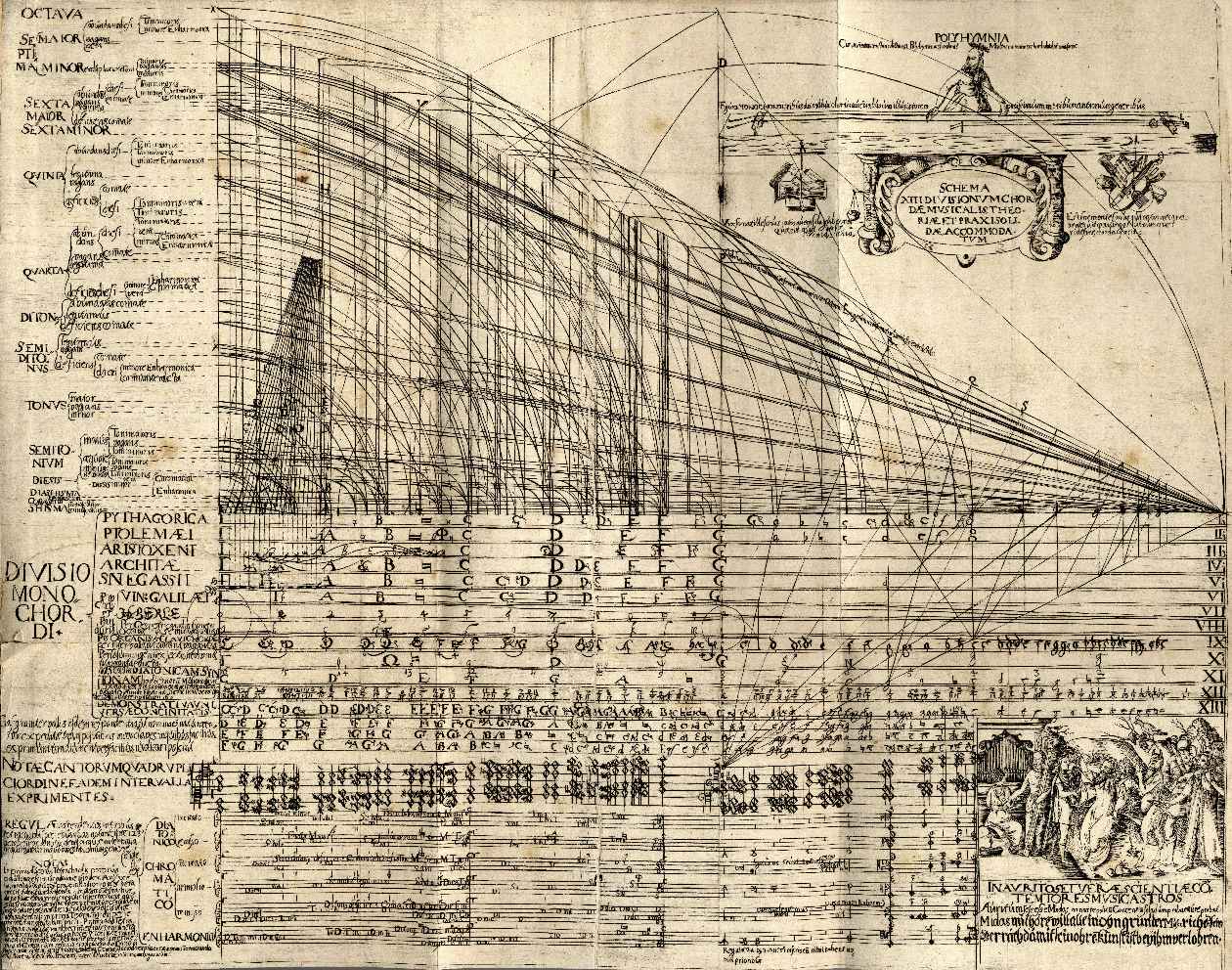Bereichsnavigation
Music theory
Music theory is one of the main fields of research pursued at the Staatliches Institut für Musikforschung (State Institute for Music Research). After careful planning and thorough discussion, the “History of Music Theory” project was created to provide a formal, long-term context for studies in this area at the SIM.

The project was originally proposed by Carl Dahlhaus. Recently, its purview was expanded to include the publication of the project’s research results in a multivolume series titled Studien zur Geschichte der Musiktheorie (Studies on the History of Music Theory). One new, specific focus of the institute is research in which the various relationships between historical music theory and the practice of music making are investigated using audio-analytical methods.
Geschichte der Musiktheorie
The history department at the SIM is continuing its work on a fifteen-volume history of music theory titled Geschichte der Musiktheorie (History of Music Theory). This series offers a detailed account of music-theoretical thought from antiquity to the present. The more than fifty internationally known scholars involved in the undertaking are following the principle of documentary historiography. With this project, the institute is making a key contribution to the illumination of a specific, noteworthy branch of European intellectual history. Each volume includes carefully coordinated essays from established experts. However, the editors have attached special importance to keeping the materials accessible to not just highly specialized authorities but those from outside the field as well. The Geschichte der Musiktheorie is published by the Wissenschaftliche Buchgesellschaft Darmstadt.
Studien zur Geschichte der Musiktheorie
The multivolume series Studien zur Geschichte der Musiktheorie (Studies on the History of Music Theory) presents the results of contemporary research in the field of historical music theory. The jumping-off point for the series is the “Geschichte der Musiktheorie” project at the Staatliches Institut für Musikforschung. In addition to monographs on historical music theory, the series also publishes editions of previously unknown or little-heeded sources. These editions are richly annotated, and the editors also make a point of prefacing them with detailed introductory material. Where appropriate, German translations are also provided. One thematic focus is the field of early German music theory. Studien zur Geschichte der Musiktheorie is published by Olms-Verlag in Hildesheim.
Klang und Begriff
The series Klang und Begriff (Sound and Idea) uses the connection between the research activities of the SIM and the work of the Musikinstrumenten-Museum to reflect on the relationship between musical theory and the practice of music making.
The research on performance combines insights gleaned from music theory and musical history with opportunities for practical study offered by the museum’s large collection of historic musical instruments. The results are presented in two ways: in the form of public-facing events put on within the concert series Alte Musik live (Early Music Live) and as publications containing deeper scholarly discussions on the subject and featuring recordings on CD or CD-ROM that make it possible to verify the fleeting auditory impressions of the event.
This research focuses not on the pure musical form of the score but on the acoustic reality of its performance; its goal is a sort of analysis of the acoustic reality of music underpinned by deeper historical and theoretical dimensions. This approach also makes a point of invoking the category of the “instrument.” In any particular case, it examines a “historical” constellation of the composition, instrument and performance, which is characterized via an analysis of the actual sound as the central, authoritative point of reference. The series Klang und Begriff. Perspektiven musikalischer Theorie und Praxis is published by SCHOTT MUSIC in Mainz.

